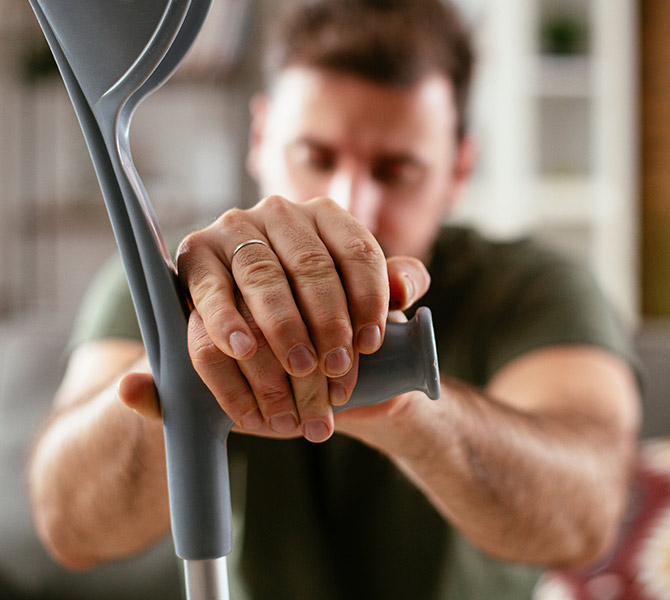What Are Diminished Quality of Life Damages?
Diminished quality of life damages go beyond compensation for physical pain. They account for the many ways your injuries have altered your day-to-day living, enjoyment of life, and emotional well-being. Since these losses are unique to each person, no two claims are exactly alike.
When pursuing these losses and other personal injury damages, it’s crucial to document how your injuries have affected your personal relationships, emotional state, independence, and ability to enjoy activities you once loved.
Common Diminished Quality of Life Damages
Diminished quality of life damages can encompass several types of non-economic losses in New York injury claims. These may include:
- Physical pain & suffering
- Humiliation & embarrassment
- Anxiety, fear,& excessive worry
- Indignity or shame
- Damage to your reputation
- Loss of an organ or limb
- Infertility or the inability to have children
- Disfigurement, scarring, or permanent deformities
- Loss of companionship and affection
- Diminished ability to participate in hobbies or activities you once enjoyed
These losses may vary depending on the severity of your injuries, your personal circumstances, and your ability to adapt to the changes caused by the accident.
What Impacts Quality of Life Compensation?
Since there is no fixed amount for diminished quality of life damages, your compensation will depend on various factors, including:
- Age: Younger victims may be entitled to higher compensation due to longer-lasting impacts.
- Work History: Loss of earning capacity or inability to return to a prior career.
- Severity of Injuries: Permanent disabilities, chronic pain, or visible scarring often result in higher compensation.
- Efforts to Mitigate Losses: Documenting your medical treatments and rehabilitation efforts.
- Future Impacts: How your injuries are expected to affect you long-term.
- Educational Background: The impact of the injuries on your ability to pursue educational goals.
- Living Situation: Whether your home environment can accommodate your injuries or disabilities.
- Shared Fault: Whether you share responsibility for the accident may reduce your compensation.
- Witness Testimony: Statements from family, friends, or medical experts regarding the impact of the injuries.
- Appearance: Visible injuries that cause emotional distress or social withdrawal.
- Proof of Liability: Your attorney must demonstrate that the at-fault party’s actions caused your injuries.
How to Prove Diminished Quality of Life in New York
Proving diminished quality of life in personal injury lawsuits requires compelling evidence that demonstrates the full extent of your physical, emotional, and psychological losses. Common forms of evidence include:
- Medical Records: Documentation of your injuries, treatments, and prognosis.
- Witness Testimonies: Statements from family, friends, or colleagues describing how your life has changed.
- Expert Testimonies: Medical experts, mental health professionals, and vocational experts may provide insight into the long-term impacts of your injuries.
- Photographic Evidence: Photos of your injuries and their progression over time.
- Personal Journal or Diary: Notes detailing the physical and emotional struggles you face daily.
Your lawyer will present this evidence to the court to demonstrate the full extent of your losses and justify the compensation you are seeking.
How Are Diminished Quality of Life Damages Calculated?
Calculating diminished quality of life damages depends on the specifics of your case. However, some methods insurance adjusters and others use to estimate value involve the multiplier method and the per diem method.
The multiplier method assigns a value by multiplying your economic damages (such as medical bills) by a factor based on the severity of your injuries. The per diem method assigns a daily rate for your pain and suffering and multiplies it by the duration of your recovery.
Diminished Quality of Life Damages Are Not Punitive
It is important to note that diminished quality of life damages are compensatory, not punitive. This means they are meant to reimburse you for the hardships you’ve experienced, not to punish the at-fault party.
Punitive damages are only awarded in cases where the defendant’s behavior is found to be particularly reckless, grossly negligent, or intentionally harmful. While you are entitled to compensatory damages to help you recover, punitive damages are awarded only under special circumstances.
Get Help Pursuing Diminished Quality of Life Damages in NY
If your injuries have affected your ability to live life fully, you may deserve compensation for your diminished quality of life. At Hecht, Kleeger & Damashek, P.C., our elite NY injury lawyers understand how devastating the effects of an accident can be and are committed to helping you secure the maximum compensation you need to move forward.
Contact HKD today for a free consultation and learn how we can help you build a strong case for diminished quality of life damages. There’s No Fee Unless We Win.
Tell Us What Happened
"*" indicates required fields

